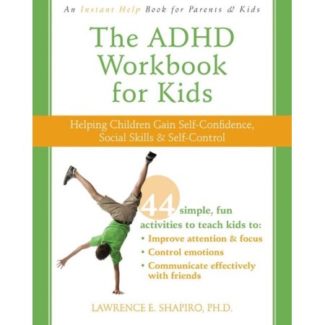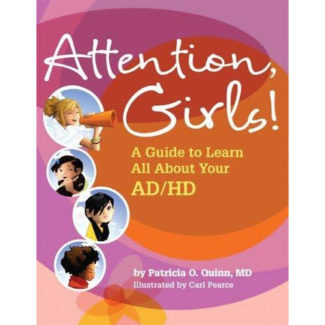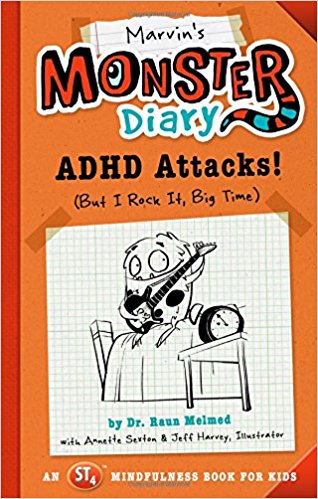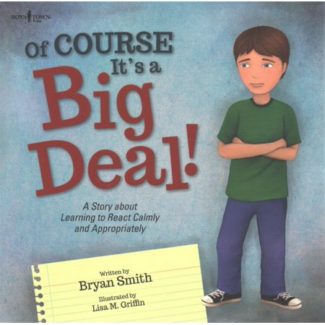Kids with ADHD and executive functioning problems can find it difficult to fit into their world, “bumping” into others physically, socially, and emotionally. They may behave impulsively or do something upsetting to others, even when their intentions are good. Unfortunately, misbehaving, being socially awkward, and getting into trouble can cause a great deal of distress for kids with ADHD and executive dysfunctions.
One of the best ways to address these issues with kids is to read books about other children with the same concerns. Reading about someone else, especially when some humor is injected into the story, is less threatening to children, making it more likely that they will want to change their own behavior. Reading together is invariably a positive experience for parents and kids, and follow-up discussions about changing behavior can be more collaborative. Reading books where children can learn about the experiences of other kids with ADHD and executive-functioning problems also can make them feel less different from their peers.
Here are some book recommendations for kids with ADHD and executive functioning problems:

The ADHD Workbook for Kids: Helping Children Gain Self-Confidence, Social Skills, and Self-Control
by Lawrence E. Shapiro PhD
Recommended Age Group: 6-12
Summary: From Amazon, “This workbook includes more than forty activities for kids developed by child psychologist Lawrence Shapiro that can help your child with ADHD handle everyday tasks, make friends, and build self-esteem while he or she learns to overcome the most challenging aspects of the disorder. Alone or with your help, your child can complete one ten-minute activity each day to learn how to make good decisions and discover easy techniques for staying focused when it’s time to pay attention.”
 Attention, Girls!: A Guide to Learn All About Your Ad/Hd
Attention, Girls!: A Guide to Learn All About Your Ad/Hd
by Patricia O. Quinn
Recommended Age Group: 9-12
Book Summary: From Amazon, “Contains practical ways to improve organization, focus, study and homework skills, as well as information on making and keeping friends, dealing with emotions, improving self-esteem, overcoming sleep problems, understanding medication, and managing anxiety.”
 Marvin’s Monster Diary: ADHD Attacks! (But I Rock It, Big Time)
Marvin’s Monster Diary: ADHD Attacks! (But I Rock It, Big Time)
by Raun Melmed
Recommended Age Group: 7-11
Book Summary: From Amazon, “In the same humorous spirit of Diary of a Wimpy Kid comes Marvin’s Monster Diary: ADHD Attacks! (And I Win, Big Time). Using the “monstercam” and “ST4” techniques developed by Dr. Raun Melmed of the Melmed Center in Arizona, Marvin’s Monster Diary teaches kids how to be mindful, observe their surroundings, and take time to think about their actions. Marvin’s hilarious doodles and diary entries chronicle his delightful adventures, misadventures, and eventual triumph in a funny, relatable way. It’s the one book on ADHD that kids will actually want to read!”
by Bryan Smith
Recommended Age Group: 4-7
Book Summary: From Amazon, “Braden is back – and he delivers the drama to every minor misunderstanding, grievance and annoyance in his life! What was supposed to be a carefree afternoon of go-cart racing and putt-putt golf, quickly turns sour when Braden shouts and pouts about the rules. Turns out he is too short to drive a go-cart by himself. Will Braden ever learn to keep his cool in the face of disappointment? Will every discouraging moment send him into an emotional meltdown? Part of the Executive Function series of books for children, Of Course It’s a Big Deal teaches kids not to overreact to situations.”
by Julia Cook
Recommended Age Group: 6-11
Book Summary: From Amazon, “To get the most out of your time and accomplish all that you need to do, you have to be able to plan and prioritize both on a long and short-term basis. This storybook is the second in the “Functioning Executive” book series. It highlights the importance of planning and prioritizing. It also spotlights the unique differences and strengths that live in all of us. This book will help teach children to determine the necessary steps, in order, towards fulfilling a goal which is a vital executive function skill. Children who possess effective prioritizing skills can learn to manage not only daily responsibilities, but also how to prepare for future success.”
Featured image: Flickr user John Morgan






